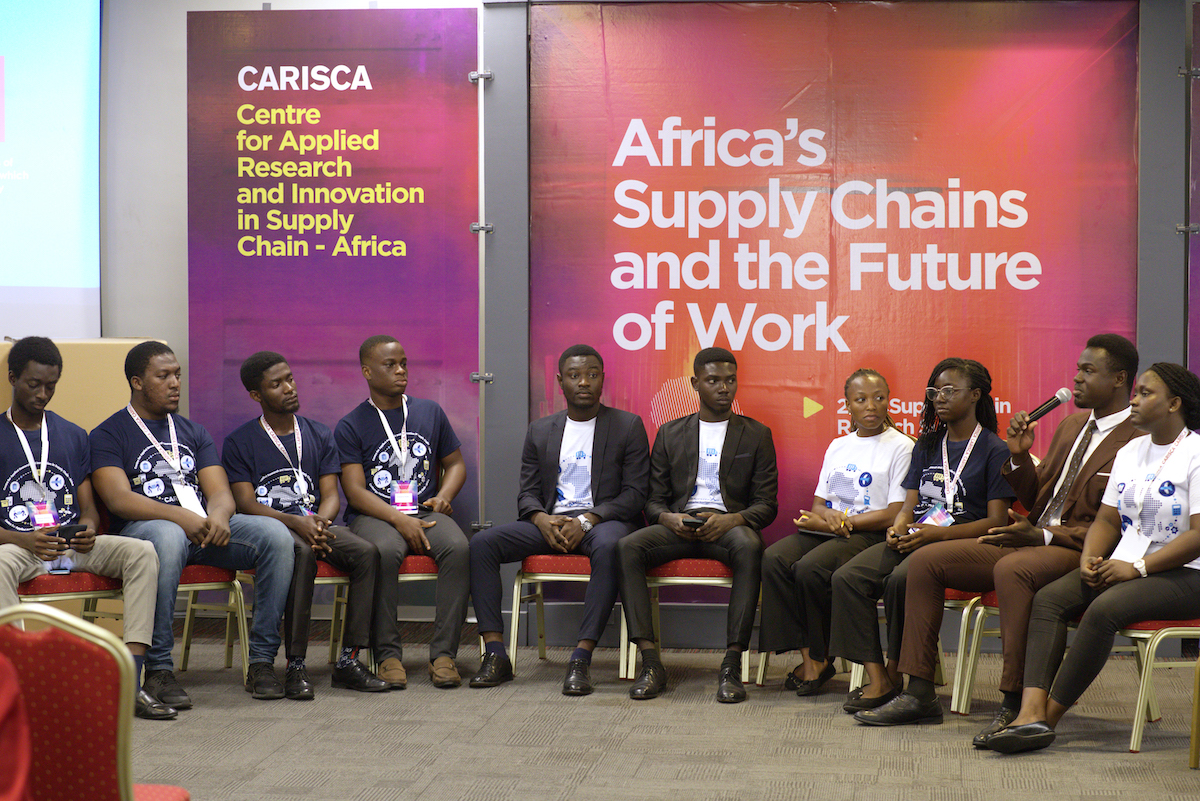As an emerging economy, Ghana faces myriad challenges. For example, as much as 35% of its agricultural products are lost along the supply chain before reaching consumers. Unemployment is high. Only 10% of the solid waste generated daily in the country is collected and properly disposed of.
These are just three of the difficult national problems that students are developing solutions for in CARISCA’s Innovations Lab at KNUST. The lab, created in 2020, serves as an entrepreneurial training hub and innovation incubator.
To date, the lab has supported student-led projects (described below) and provided a physical space for face-to-face meetings with key stakeholders and partners. In the coming year, the lab also will provide space and support for four faculty-led innovation projects that address specific challenges faced by industry.
“We expect the Innovations Lab to attract the interest of businesses, government agencies, civil society organizations and others who are trying to solve real-world supply chain problems,” says John Serbe Marfo, the CARISCA senior technical advisor who leads the lab. “It serves as a connection point for involving new stakeholders in supply chain research translation activities.”
At the Supply Chain Research Summit in June, the lab’s five student teams presented on their projects and the impacts they hope to have. Following are brief descriptions of each project.
Team AREPO
Software to enhance supply chain audits and help the environment by replacing paper receipts with digital receipts.
Paper receipts are problematic for several reasons. People often lose or discard them, creating a staggering 1.5 billion pounds of waste each year that cannot be recycled, due to the coating. Lost receipts also cause inefficiencies in supply chain financing, expense management and auditing.
Team AREPO is developing a mobile and web app that converts paper receipts to digital receipts using OCR (optical character recognition) technology and artificial intelligence. AREPO also will replace thermal paper printers with a QR code system. Instead of getting a paper receipt after making a purchase, buyers will scan a QR code with their smartphone to get a digital receipt.
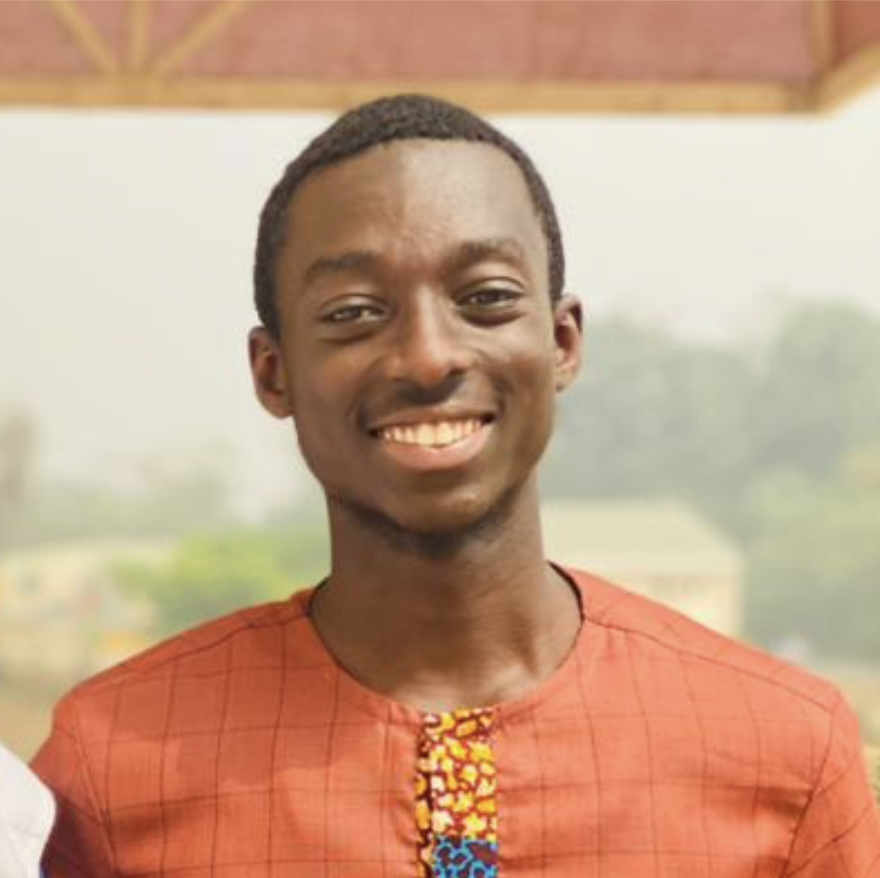
“With AREPO, you can always access your receipts,” said team member Machele Alhassan Ahmed, a senior computer engineering student. “You won’t need to search your office, inside your cabinets at home or on some table any longer to find your receipts.”
Team Cleeve
An AI prototype designed to improve medical diagnostic services
According to autopsy studies, tens of thousands of hospitalized patients die every year due to diagnostic errors. Even absent the errors, getting lab results can take nearly a month, delaying treatment and risking patient lives. On top of the health care impacts, costs associated with inappropriate testing, wrong treatments and malpractice lawsuits can total over $100 billion per year.
Team Cleeve has developed a prototype AI medical diagnosis system using a portable microscopic camera attached to a smartphone. Once trained, the AI tool can read a blood smear for parasites and render an accurate diagnosis in 10 seconds. The app then creates a report and sends it electronically to the doctor by email or SMS.
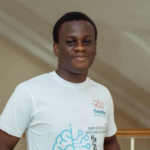
“This tool will help promote health care services supply chain and also improve fast prescriptions as well as reliable automated reports, which will help make our world a better place to live in,” said Team Cleeve member Emmanuel Boafo, a senior electrical engineering student.
Team Inserviz
A system that tracks student experiential transcripts to address graduate employment challenges
High unemployment among Ghanaian youth hinders the country’s economic prospects. It also is a key factor making young people vulnerable to extremism and terrorism, according to a recent United Nations Development Program report.
Team Inserviz is addressing this problem by developing a digital platform for youth to advertise their availability and experience for gig work. A key feature of the app is that it will provide an experiential transcript as evidence of the gig worker’s qualifications. The team also is partnering with NGOs who want to advertise volunteer opportunities through the app.
“In that way, we are helping two parties: NGOs who need talent to work with but are low on budget and then people who need working experience,” explained Team Inserviz member Joshua Addai Amoah, a senior petroleum engineering student (speaking in group photo above).
Team Signals
An Uber-like app to improve waste management supply chains
Uncollected trash poses serious health and environmental risks in Ghana. Many cities, rural settlements and slums lack adequate waste pickup service. As a result, people dump uncollected trash into drains, rivers and surrounding areas, or it is locally burned or buried.
Team Signals aims to solve this problem by creating an app to pair up waste producers and waste collectors, similar to how Uber pairs up drivers and riders. Waste collectors, including companies and individuals on tricycles, or aboboyaas, can register on the app. People and businesses who need their trash picked up can hire those collectors. The service also will provide job opportunities for youth who want to work as trash collectors.
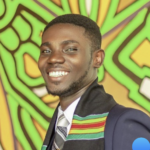
“We want a cleaner environment, a healthy environment,” said Samuel Kum, a member of Team Signals and senior business information technology student. “So we want anywhere there is unattended waste, there is a waste pickup arrangement or schedule for you.”
Team Wellfed
A solution to post-harvest loss, particularly of tomatoes, due to poor storage facilities
Smallholder farmers in Ghana often live on less than $2 a day. When their crops are perishable, like tomatoes, they’re forced to sell at a low price or risk having the products rot. This situation reinforces the cycle of poverty. Further, the decomposing crops emit methane gas and carbon dioxide, contributing to climate change.
Team Wellfed is working to extend the shelf life of tomatoes from a week to 21 days, which can significantly reduce post-harvest losses. The solution is a mobile evaporative cooling chamber made of brick, sand and burlap bags. When cold water is poured into the sand, the bricks maintain the temperature, and it creates an evaporative cooling system.
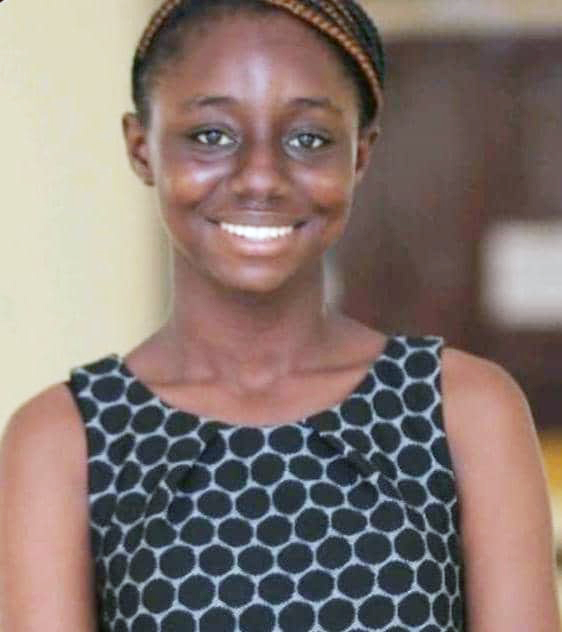
“We are saving a lot of food and we are eliminating hunger,” said Team Wellfed member Frimpong Serwaa Theresa, a senior biochemistry student. “Also, by preventing decomposition, it goes a long way to saving our climate.”
Looking Ahead
Over the coming year, the Innovations Lab will focus on commercializing the five student-engineered solutions. Besides tackling serious national problems, the projects are expected to address graduate unemployment challenges by encouraging self-employment or new business creation by team members.
“The mission of the CARISCA Innovations Lab is to harness the brilliance, unique talents and merits of African students to foster innovations that transcend borders,” says Stephen Frimpong, the lab’s administrative manager. “We are dedicated to empowering students to redefine the future.”


